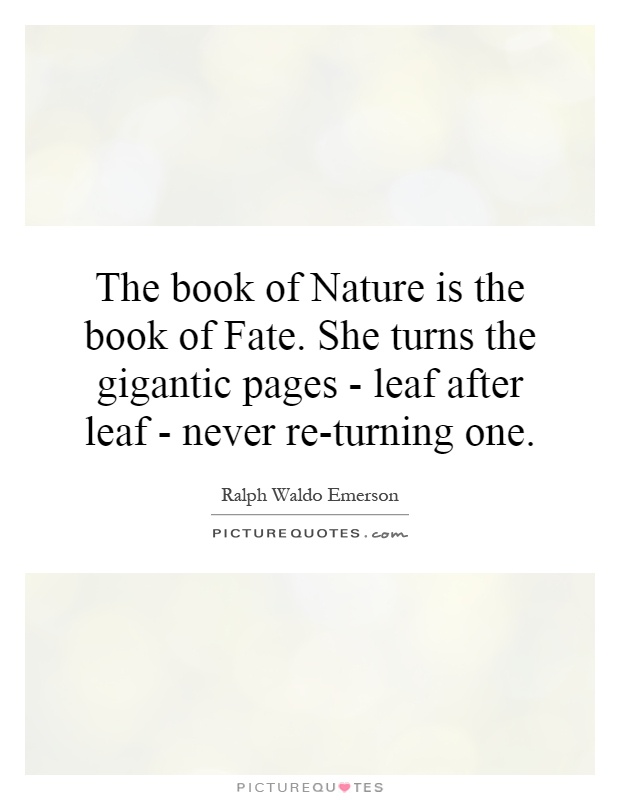The book of Nature is the book of Fate. She turns the gigantic pages - leaf after leaf - never re-turning one

The book of Nature is the book of Fate. She turns the gigantic pages - leaf after leaf - never re-turning one
Ralph Waldo Emerson, a prominent American essayist, poet, and philosopher, was known for his transcendentalist beliefs and his deep connection to nature. In his essay "Fate," Emerson explores the idea that nature is a powerful force that governs the destiny of all living beings. He believed that the natural world was a reflection of the divine and that by observing and understanding nature, one could gain insight into the workings of fate.Emerson famously wrote, "The book of Nature is the book of Fate. She turns the gigantic pages - leaf after leaf - never returning one." This quote encapsulates Emerson's belief that nature is a source of wisdom and guidance, much like a book that contains the secrets of the universe. He saw nature as a living, breathing entity that held the key to understanding the mysteries of life and death.
For Emerson, the idea that nature never turns back a page symbolizes the relentless march of time and the inevitability of fate. Just as the seasons change and the tides ebb and flow, so too do the events of our lives unfold according to a predetermined plan. Emerson believed that by aligning oneself with the rhythms of nature, one could find peace and acceptance in the face of life's uncertainties.












 Friendship Quotes
Friendship Quotes Love Quotes
Love Quotes Life Quotes
Life Quotes Funny Quotes
Funny Quotes Motivational Quotes
Motivational Quotes Inspirational Quotes
Inspirational Quotes